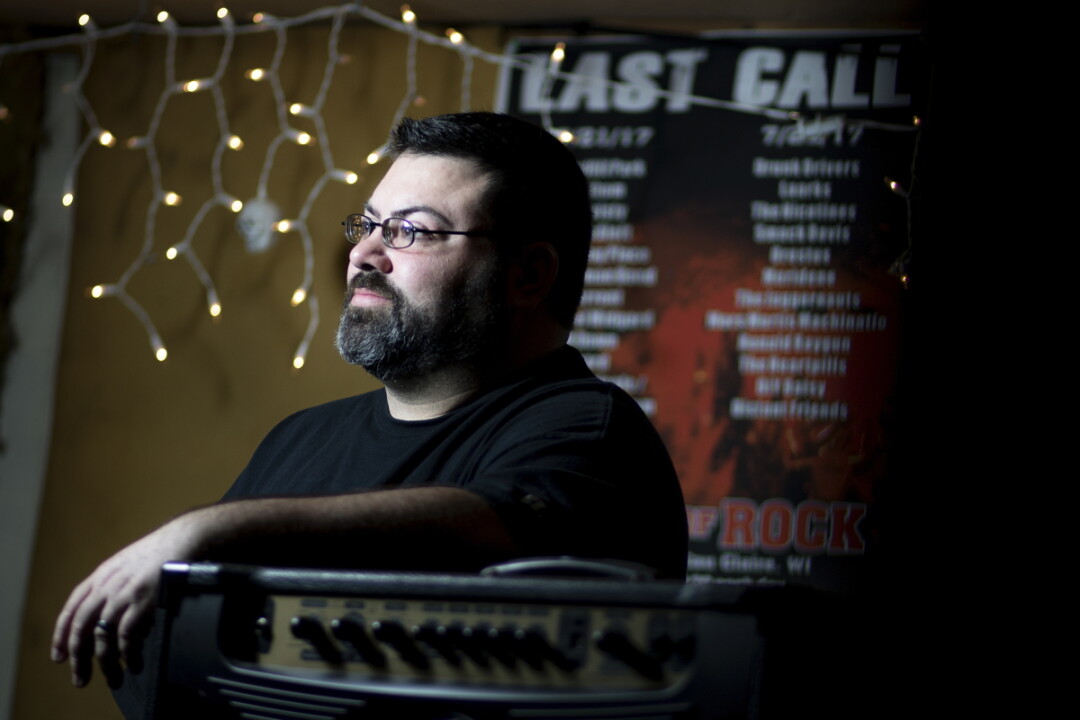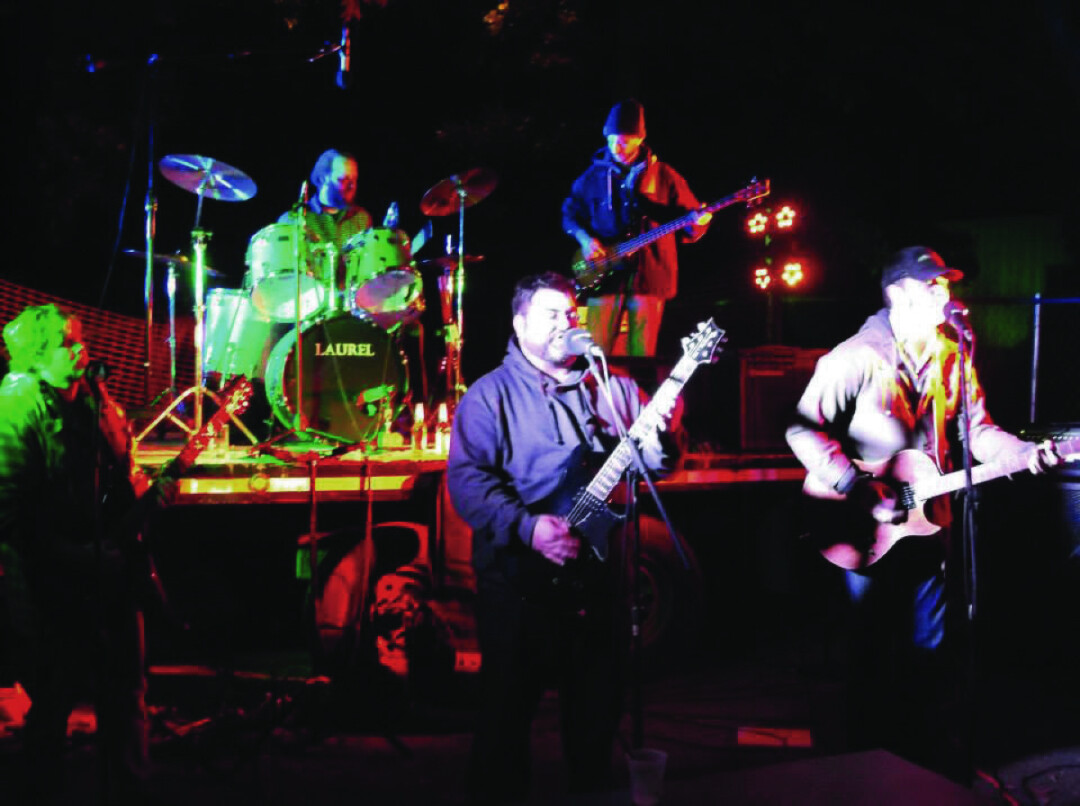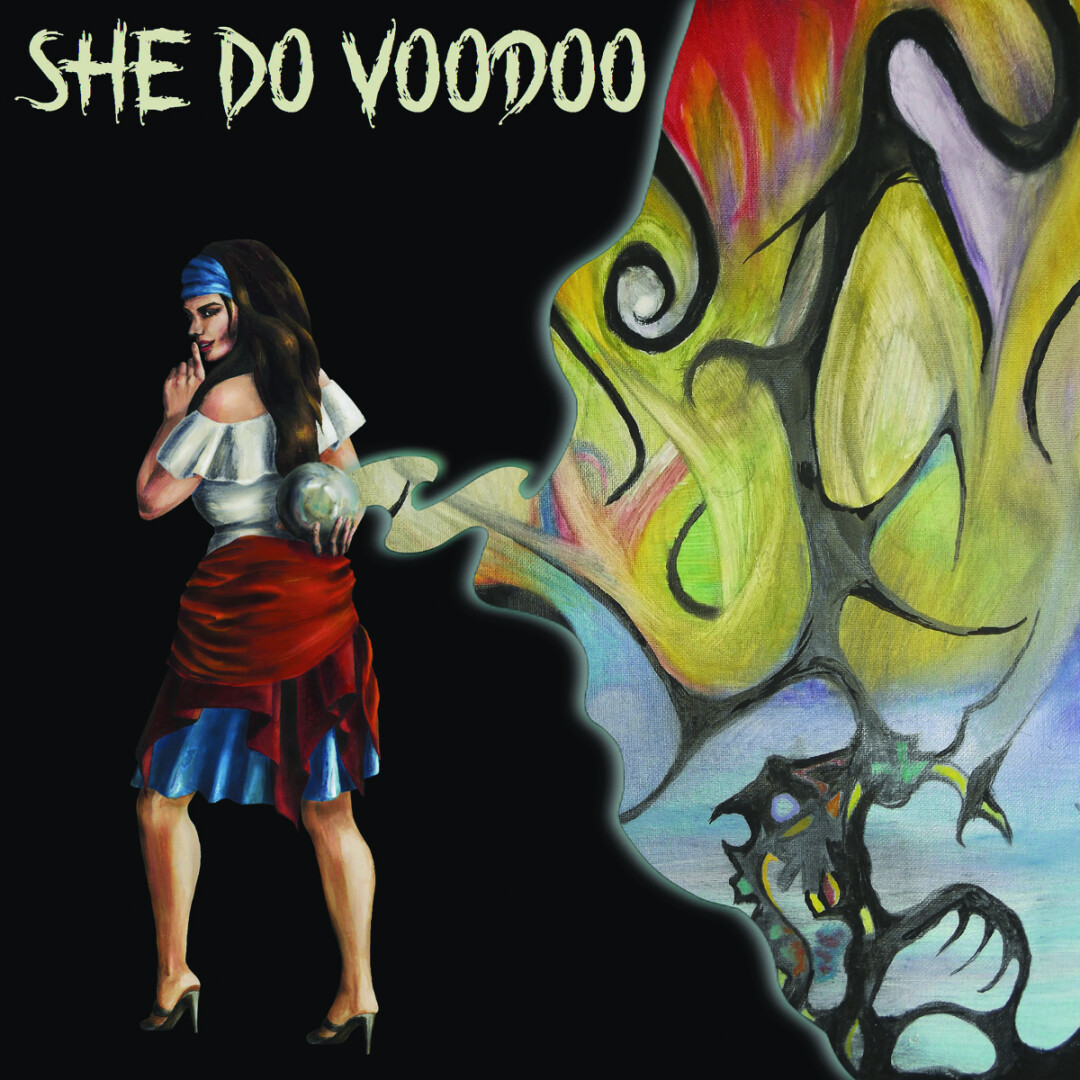Can't Keep a Good Song Down
releasing She Do Voodoo’s unpublished album
Andrew Patrie, photos by Andrea Paulseth |

Sometimes we get lucky: we find a $20 bill in a jeans pocket, the doctor tells us test results came back negative, or we are allowed a second chance to make good on a youthful dream. The latter certainly seems true for local singer/songwriter Shane Sanders, who currently plays guitar for Beercan Pentagram (though he considers himself “not really a metalhead”). Only three short years ago Sanders and his childhood friends recorded one full length album and one EP’s worth of material for the alluringly named band, She Do Voodoo, before watching it all collapse under the weight of jobs, divorce, distance, and family commitments just when outside interest in the band was beginning to heat up.
Sanders shelved the recordings, uncertain they would ever be released to the general public. But time softens more than our waistlines. It mellows the harsh light of memory we sometimes cast over the past. 2017 finds Sanders ready to talk about his posthumous project whose songs are (finally) available to audiences everywhere. I ask Sanders to take us back to May 2014.
“Oh, man,” he sighs, fumbles with a pack of cigarettes, produces one, lights it, inhales, exhales, ghost-white smoke vivid against descending dusk. “I honestly thought we had a shot. Different production companies were making offers. Evan Middlesworth, who recorded it, was excited. Stuff he has a hand in tends to turn to gold. Then things just … fell apart, and I was left with an album, but no band, nobody to promote it, no idea what to do.”
So he did nothing, a period of emotional paralysis kin to the breaking of any committed relationship. “Malachi [Brown, also on vocals and guitar], Jeremy [Reed, bass] and I had been playing together, in some form, for 15 years by that point. [Along with Sean Selz, drums] it was really hard to lose that way of relating to each other,” Sanders confesses.

However, it’s also hard to keep a good song (or 12) down. “I’m ready to let them go, to give them to someone else. They can be their songs now,” Sanders says. “Because they were mine, they got me through some tough times. Maybe they can do the same for others. That would make me happy.”
It should make others happy, too. Sanders’ influences range from The Moody Blues and early Genesis to ’80s radio pop (“It teaches good hooks”) to ’90s grunge and college rock (i.e. Jimmy Eat World and, at least to this writer, Superdrag), which means the album is foundationally guitar-driven, punctuated by huge, harmonic choruses, and all the more addicting for it. Look no further than track two, “Rebound,” for proof: a tale of complicated love with a main riff and refrain which draws the listener back again and again like a (ahem) rebound. Other highlights include the quiet reprieve of “Slow Winter Nights,” where Sanders’ voice achieves a kind of crystalline shimmering, and penultimate track (and this writer’s personal favorite) “Satellite,” primarily sung by Brown, which builds to the moment Sanders harmonizes the line “What’s one lost eon to be inside starlight?” It is both beautiful and beguiling, startling in its brevity, like starlight.
She Do Voodoo also recorded the four-song Drink EP simultaneously with their eponymous album. “The separation was intentional,” Sanders explains. “The EP has a totally different texture from the album. It has horns, and a bluesy, classic country feel. My dad’s from the south, so I grew up with those musical influences, too, and I wanted to find a home for them.”
Established local artists Sue Orfield and Billy Angel also contributed to Drink. “Before the collaboration, I didn’t know them personally, but I appreciated their talents as musicians,” Sanders says. “They both are open to anything, musically speaking, and we developed a mutual respect during the recording sessions.”
With the revelation that his work in She Do Voodoo is currently available over platforms such as iTunes, Amazon, and wherever one downloads music, he appears more at ease, and so we shift from the past to the present and Beercan Pentagram: “Today I’m playing music with people dedicated to playing music for the sake of music. That’s very important to me, especially as I get older.”

“When you’re young,” Sanders muses, “you’re just trying to figure out who you are. You’ve got these big dreams. Then life kicks you in the face. Takes what it wants, tries to crush those dreams. To be playing music with people who have experienced this and are still making art in defiance of it, I feel really lucky.”


















